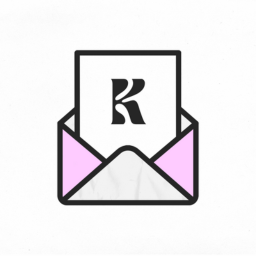OpenAI strikes multi-year deal with Condé Nast to integrate content into AI products
The deal grants OpenAI permission to train its models on Condé Nast's content

Get Smarter at Marketing
OpenAI has announced a multi-year partnership with Condé Nast. This deal allows OpenAI to integrate and surface content from Condé Nast's extensive publications, including The New Yorker, Vogue, Vanity Fair, and WIRED, within its AI-driven platforms such as ChatGPT and the new SearchGPT prototype.
Brad Lightcap, OpenAI’s Chief Operating Officer, claimed that the deal is to ensure that artificial intelligence becomes more involved in how news is found and shared. “We’re committed to working with Condé Nast and other news publishers to ensure that as AI plays a larger role in news discovery and delivery, it maintains accuracy, integrity, and respect for quality reporting,” Lightcap said.
How will the partnership between OpenAI and Condé Nast work?
The partnership between OpenAI and Condé Nast will allow OpenAI to train its AI models using Condé Nast’s extensive content library. It will access and present information, and feature stories from Condé Nast's brands, allowing users to access and interact with information from these publications directly through OpenAI's AI tools.
A response to industry shifts
In the announcement post, Condé Nast's CEO, Roger Lynch, highlighted the critical nature of this partnership, emphasizing the need to embrace new technologies while safeguarding the value of the company's intellectual property.
He acknowledged the ongoing challenges within the publishing industry, particularly the recent shifts in traditional search technologies that have made it increasingly difficult for publishers to generate revenue.
“Over the last decade, news and digital media have faced steep challenges as many technology companies eroded publishers’ ability to monetize content, most recently with traditional search,” Lynch stated.
While specific financial details of the agreement were not disclosed, Lynch hinted at substantial compensation for the use of their content.
“Our partnership with OpenAI begins to make up for some of that revenue, allowing us to continue to protect and invest in our journalism and creative endeavors,” he said.
This position aligns with the perspective of The Atlantic CEO, Nicholas Thompson, speaking in June about a partnership between OpenAI and The Atlantic to integrate its content into SearchGPT. Thompson suggested that the partnership will be beneficial to the company as it is “a fair exchange of value."
OpenAI claims the company is working with news organizations to gather feedback on how well SearchGPT is designed and how it performs. “We're collaborating with our news partners to collect feedback and insights on the design and performance of SearchGPT, ensuring that these integrations enhance user experiences and inform future updates to ChatGPT.”
Industry trends among media companies
This deal follows similar partnerships between other prominent publishers and AI companies. For instance, OpenAI partnered with Reddit in May and entered a similar agreement to use The Atlantic's content to train its large language models for the next two years.
Publishers including Axel Springer, Financial Times, and TIME have also struck deals with OpenAI, while platforms like Automattic, the parent company of WordPress and Tumblr, have joined the fold.
%20(1).png)
in the world of marketing:
